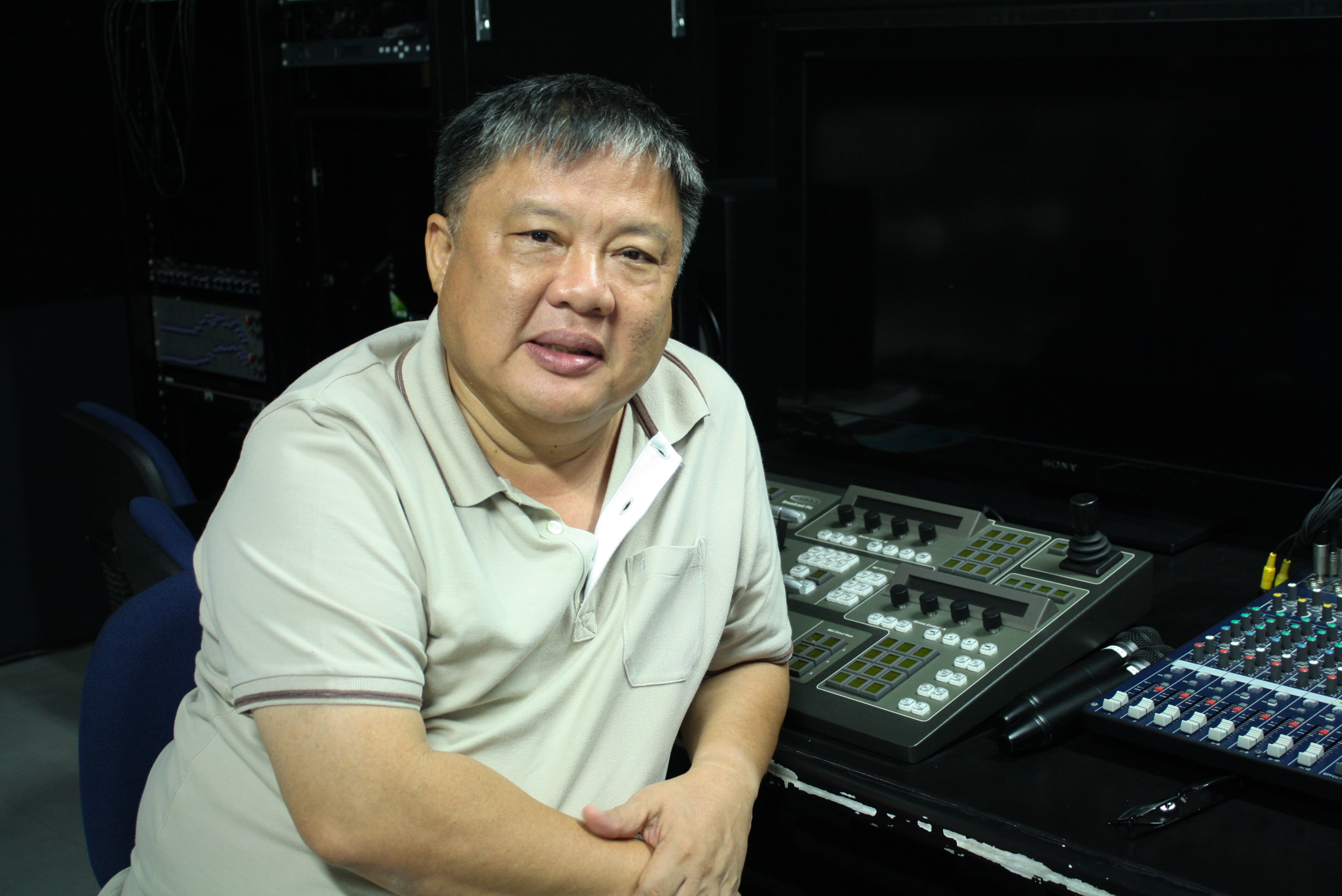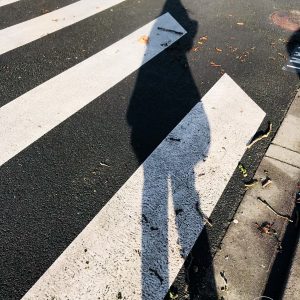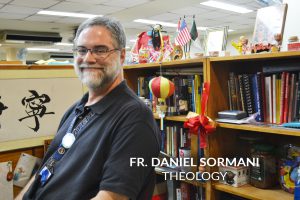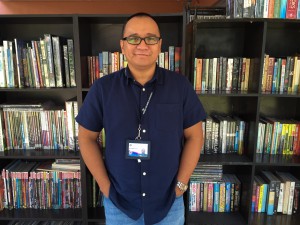Stephanie Sayson interviewed Sir Severino Sarmenta for Teachers’ Appreciation Week.
Stephanie Sayson (ST): First question. Why did you choose to be a professor?
Severino Sarmenta (SE): Two reasons. First, when I was a student, I felt that our course, Field Communications, could be taught better. I wasn’t totally disappointed with my course, but I thought it could be taught better. It was so exciting that I felt bitin. Then when I started working in advertising, in public relations and in production that I decided, “Hey, someday I’m going to teach.” If not combine it with the things I’m doing, I want one part of my life to be teaching. I’m from a family of teachers like my lolo, my dad, my uncles and aunts, so it’s probably a DNA thing. I started teaching in 1982. Not here, but a school called St. Joseph’s College out there in Quezon City. Then I taught at UP. I started [to teach] here in 1985.
ST: I see. So next question. What do you love most about teaching?
SE: Many things. The energy of young people is always contagious, and you stay young forever. The nice, new ideas, especially nowadays wherein I learn more from the students because of the technology that’s available and because the students know more and I discovered new ways of doing things from students. The other thing [I love] about teaching is the other things I do that I can bring into our classroom because the field is like medicine. You have to get it from the outside and bring it inside. I can’t teach you anything unless I do something with my own patience, quote-unquote, so it’s nice to bring things stuff from the outside and bring it inside.
ST: For sure you’ve had a lot of memories from your years in teaching. What can you say is your best memory you’ve had in a classroom?
SE: I’ve been teaching for 30 years. My best memory is that students surprise me when they come up with something I didn’t expect. That also comes from somebody who hasn’t been doing well and suddenly turns around and does very well. That surprise also comes from later on when they graduate then they do very very well. Maganda sa field natin is that we see most of the work on television, in commercials, and in public relations. Also, the thrill is sometimes working with students inside the classroom. I’ve seen how they’ve grown, how they matured, and how things change and don’t change also. The things that don’t change is the endless fascination with our field. The things that change are that they’re wiser, smarter and more frustrated than anything else but always hopeful.
ST: What do you do when you aren’t teaching?
SE: Many things. I write. I do sports. I do productions, but that’s all work. I try to be an obedient family member, where I am not the boss in the house.
ST: What is the most valuable lesson you learned from a teacher?
SE: Let them fly. Let them fly. A teacher long time ago, Doreen Fernandez said, “You can’t be very good everyday and the day will come when [your] students will. There will always be some students [who are] better than you. And also those who don’t perform well, just let them fly. Because the birds can’t learn how to fly unless they flap their wings, diba? If you look at the birds, they don’t hold on to each other. They flutter; they fall, but they’ll survive. They’ll be okay like ducks in the water. They’ll be fine. God has made us, God has made us, in order to succeed. I don’t think He set us up to fail, even if we have five fingers or have physical handicaps and stuff like that–I still think we were designed to succeed.
ST: Who inspired you to teach?
SE: My parents. They were both teachers. Both my parents were doctors, but instead of just curing people, they decided to teach. My father was a researcher, a pathologist per se. My mother–who for a while kept her career in whole run when we were growing up–decided to go back to her profession, but she decided to be a biochemistry teacher instead of a pediatrician. We’re a family of teachers. I guess it’s just that we grew up with books. There was so much knowledge to share actually. Some families are not readers; we’re a family of readers.
ST: With everything you’ve said, what is one thing you want all your students to learn?
SE: To have fire in their bellies when they get out of here. To be inspired to change the world because it’s not perfect. To be able to not be afraid when frustration comes in. Just to have that fire. Ako nga kahit papa’no it’s still–although patapos na years ko dito sa Ateneo–probably in my field, the Public Relations field. May kunti pang fire na natitira. As long as that fire is burning, I don’t think that we could fade, and I don’t think we can be so frustrated for so long. It’s not perfect. School prepares you to fail sometimes. In other words, with some of our disappointments, we learn to handle them when we’re in school, so that later on when the disappointments are bigger like when you lose money or you lose projects, you learn to bounce back so you learn to fly again.




